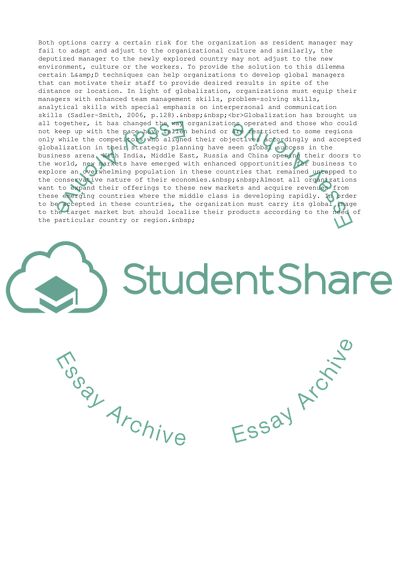Cite this document
(Globalization and need for Global Managers Assignment - 1, n.d.)
Globalization and need for Global Managers Assignment - 1. Retrieved from https://studentshare.org/management/1788814-leadership-learning-and-development
Globalization and need for Global Managers Assignment - 1. Retrieved from https://studentshare.org/management/1788814-leadership-learning-and-development
(Globalization and Need for Global Managers Assignment - 1)
Globalization and Need for Global Managers Assignment - 1. https://studentshare.org/management/1788814-leadership-learning-and-development.
Globalization and Need for Global Managers Assignment - 1. https://studentshare.org/management/1788814-leadership-learning-and-development.
“Globalization and Need for Global Managers Assignment - 1”, n.d. https://studentshare.org/management/1788814-leadership-learning-and-development.


